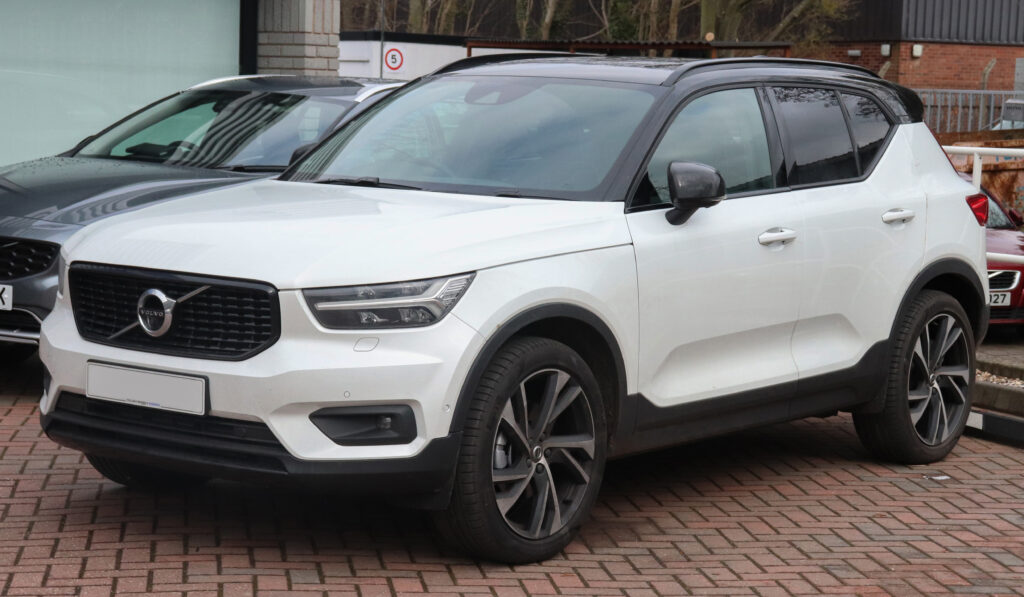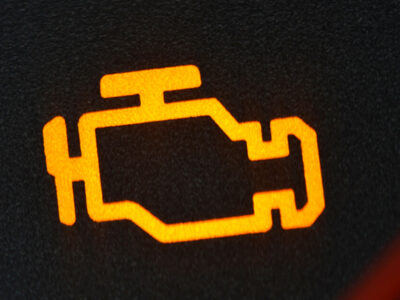
Volvo XC40 Tyre Pressure Guide (All Engines and Tyre Sizes)

Maintaining the correct tyre pressure is crucial for the safety, comfort, and fuel efficiency of your Volvo XC40. Below, we present the complete, detailed tyre pressure specifications for all factory-approved wheel and tyre sizes across XC40 engine variants, ensuring optimal performance under every load condition.
- Recommended Tyre Pressures for Volvo XC40
- Tyre Pressure by Load Condition
- Temporary Spare Tyre Pressure
- Importance of Correct Tyre Pressure
- Checking Tyre Pressure
- Seasonal and Driving Considerations
- Tyre Pressure Monitoring System (TPMS)
- ECO Pressure Settings Explained
- Tyre Pressure Conversion Chart
- Maintenance Tips for Tyre Longevity
- Final Recommendations
Recommended Tyre Pressures for Volvo XC40
Applicable to All Engines
The following tyre pressures apply to all Volvo XC40 models, regardless of engine configuration or trim level.
These figures represent the standard inflation pressures for up to three occupants and for maximum load conditions.
| Tyre Size | Speed Range | Normal Load (Front) | Normal Load (Rear) | Max Load (Front) | Max Load (Rear) | ECO Pressure (Front/Rear) |
|---|---|---|---|---|---|---|
| 235/60 R17 | 0–180 km/h (0–112 mph) | 230 kPa (33 psi) | 230 kPa (33 psi) | 260 kPa (38 psi) | 260 kPa (38 psi) | 260 / 260 kPa |
| 235/55 R18 | 0–180 km/h (0–112 mph) | 230 kPa (33 psi) | 230 kPa (33 psi) | 260 kPa (38 psi) | 260 kPa (38 psi) | 260 / 260 kPa |
| 235/50 R19 | 0–180 km/h (0–112 mph) | 230 kPa (33 psi) | 230 kPa (33 psi) | 260 kPa (38 psi) | 260 kPa (38 psi) | 260 / 260 kPa |
| 245/45 R20 | 0–180 km/h (0–112 mph) | 230 kPa (33 psi) | 230 kPa (33 psi) | 260 kPa (38 psi) | 260 kPa (38 psi) | 260 / 260 kPa |
| 245/40 R21 | 0–180 km/h (0–112 mph) | 230 kPa (33 psi) | 230 kPa (33 psi) | 260 kPa (38 psi) | 260 kPa (38 psi) | 260 / 260 kPa |
| Temporary Spare Tyre | Max 80 km/h (50 mph) | 420 kPa (60 psi) | 420 kPa (60 psi) | 420 kPa (60 psi) | 420 kPa (60 psi) | – |
Tyre Pressure by Load Condition
| Load Type | Front Tyres | Rear Tyres |
|---|---|---|
| 1–3 Persons | 230 kPa (33 psi) | 230 kPa (33 psi) |
| Maximum Load | 260 kPa (38 psi) | 260 kPa (38 psi) |
| ECO Mode | 260 kPa (38 psi) | 260 kPa (38 psi) |
Note: Always check the label on the driver’s door frame for market-specific data, as certain engine and tyre combinations may not be available in all regions.
You may be interested in reading2025 Volvo XC40 Towing Capacity: Power, Efficiency & Performance Explained
Temporary Spare Tyre Pressure
- Tyre Type: Compact temporary spare
- Maximum Speed: 80 km/h (50 mph)
- Inflation Pressure: 420 kPa (60 psi)
Use the temporary spare tyre only for short distances and replace it with a standard tyre as soon as possible.
Importance of Correct Tyre Pressure
Maintaining proper tyre pressure ensures:
- Improved safety and grip on all road surfaces
- Optimised fuel efficiency and reduced CO₂ emissions
- Extended tyre life and even tread wear
- Enhanced ride comfort and braking performance
Underinflation can cause increased wear and reduced handling stability, while overinflation may lead to a harsher ride and uneven tread wear.
You may be interested in reading 2025 Volvo XC40 Towing Capacity: Power, Efficiency & Performance Explained
2025 Volvo XC40 Towing Capacity: Power, Efficiency & Performance Explained Volvo XC40 Boot Size and Practicality: The Complete 2025 Guide
Volvo XC40 Boot Size and Practicality: The Complete 2025 GuideChecking Tyre Pressure
- Check when cold: Tyres should be checked before driving or after being parked for at least three hours.
- Use a reliable gauge: Digital pressure gauges are more accurate than analogue ones.
- Adjust for load: Increase pressure to the “max load” setting when carrying passengers or luggage.
- Recheck monthly: Tyres naturally lose pressure over time; a monthly inspection is recommended.
Seasonal and Driving Considerations
- Cold weather: Pressure drops approximately 7 kPa (1 psi) for every 6°C decrease in temperature.
- Long-distance travel: Inflate tyres to the higher “max load” or “ECO” pressure for motorway journeys.
- Off-road or rough terrain: Slightly reduce pressure for better traction, but return to standard settings afterward.
Tyre Pressure Monitoring System (TPMS)
The Volvo XC40 includes a Tyre Pressure Monitoring System (TPMS) that continuously measures tyre pressure and alerts the driver when any tyre is significantly under-inflated.
How It Works
- Sensors in each wheel transmit pressure readings to the vehicle’s control unit.
- If a tyre drops below the recommended threshold, a warning light appears on the dashboard.
- The system resets automatically after correcting tyre pressures and driving for several minutes.
TPMS Reset Procedure
- Inflate all tyres to the correct values.
- Start the vehicle and select Car Status → Tyre Pressure → Store Pressure.
- Drive above 35 km/h for at least 10 minutes.
- The TPMS warning should clear automatically.
ECO Pressure Settings Explained
The ECO tyre pressure is the higher recommended value (260 kPa / 38 psi front and rear) designed to:
- Lower rolling resistance
- Improve fuel economy
- Reduce CO₂ emissions
However, slightly firmer ride comfort may be noticed at these pressures.
You may be interested in reading 2025 Volvo XC40 Towing Capacity: Power, Efficiency & Performance Explained
2025 Volvo XC40 Towing Capacity: Power, Efficiency & Performance Explained Volvo XC40 Boot Size and Practicality: The Complete 2025 Guide
Volvo XC40 Boot Size and Practicality: The Complete 2025 Guide Volvo XC40 (2019-2025): Smart Key / Fob Battery Replacement
Volvo XC40 (2019-2025): Smart Key / Fob Battery ReplacementTyre Pressure Conversion Chart
| kPa | bar | psi |
|---|---|---|
| 230 | 2.3 | 33 |
| 260 | 2.6 | 38 |
| 420 | 4.2 | 60 |
Maintenance Tips for Tyre Longevity
- Rotate tyres every 10,000 km to ensure even wear.
- Balance wheels during every tyre replacement.
- Check alignment at least once per year.
- Inspect tread depth (minimum legal limit: 1.6 mm).
- Replace tyres in axle pairs for consistent performance.
Final Recommendations
For optimal driving dynamics and safety, maintain your Volvo XC40 tyres at the recommended pressures listed above. Regular monitoring and correct inflation enhance performance, fuel economy, and overall driving confidence.
If you want to know other articles similar to Volvo XC40 Tyre Pressure Guide (All Engines and Tyre Sizes) you can visit the category Service and Parts.
Leave a Reply






More content of your interest